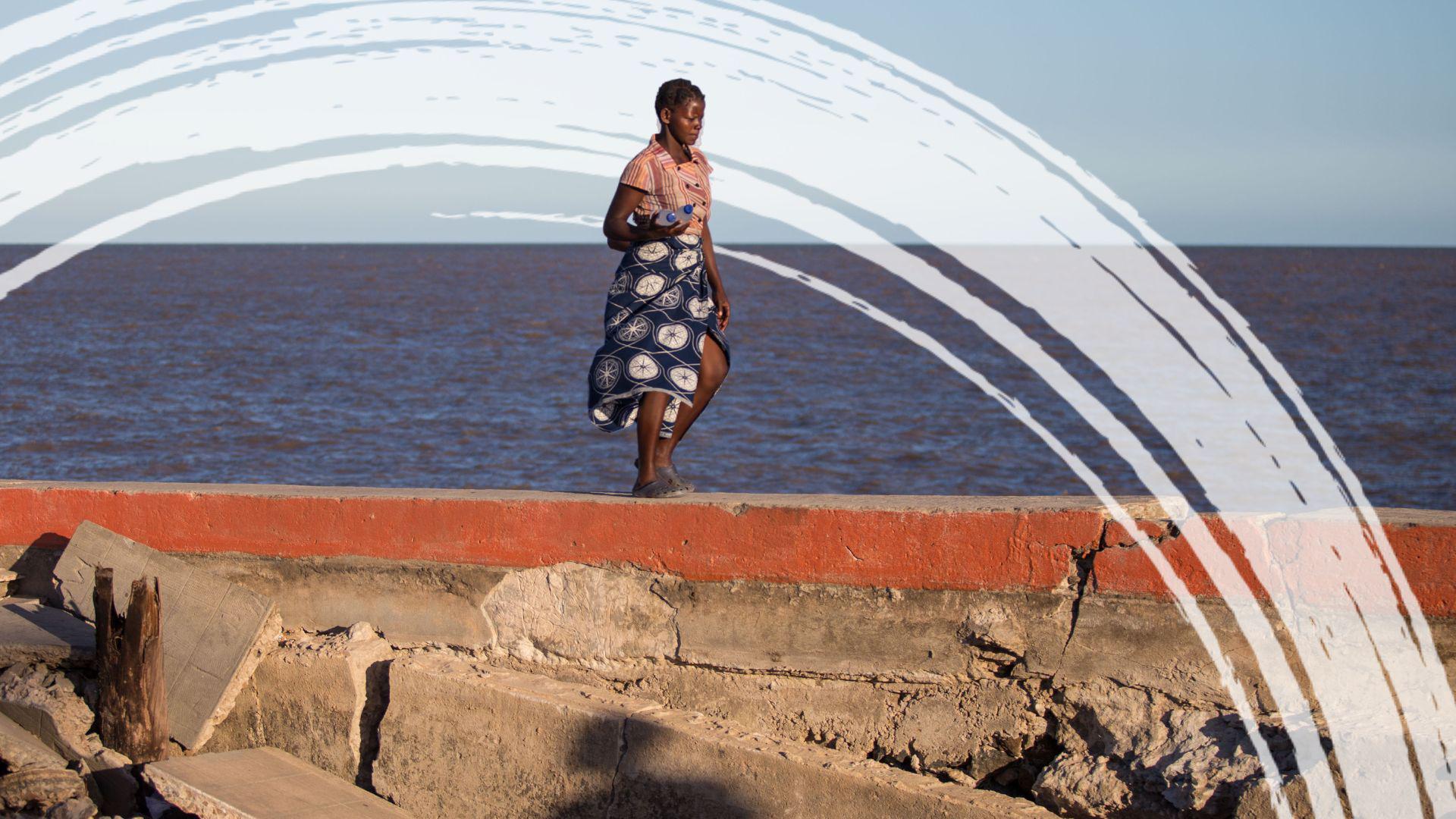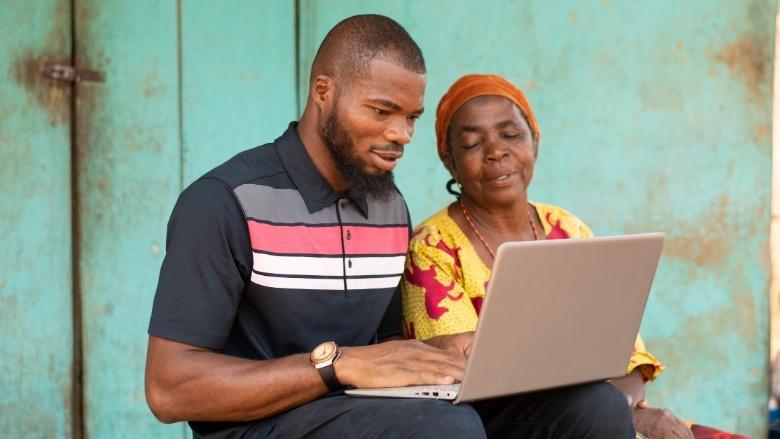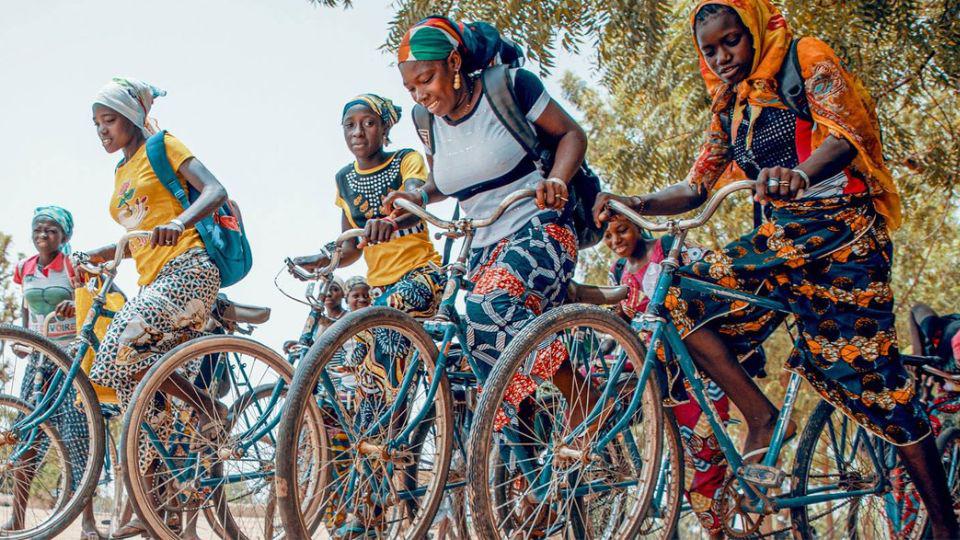[Music]
[Josh Rogin]
Good afternoon, everyone. We are gathering today at a moment where the stakes for global development could not be higher. Supply chains are shifting, debt burdens are rising, inequality is widening. Meanwhile, governments around the world are scaling back the use of public funds for development abroad. In April, our Treasury Secretary, Scott Bessent, gave a speech on this issue at the Institute of International Finance. He said that the institutions born out of World War II and the Bretton Woods system, the IMF, and the World Bank, were created to bring stability to an unstable world. He argued that the core mission of those institutions has been diluted, that mission creep has set in, and what we need now is a refocusing on core mandates, reinforcing accountability, and ensuring that developing countries are supported in ways that build resilience rather than dependency. That line of thinking frames the urgent context for our discussion today. Because while we know that the rhetoric of multilateralism is powerful, what matters is how institutions like the World Bank translate that rhetoric into action. Our speaker today is one of the people at the center of that effort. Axel van Trotsenburg is the World Bank's Senior Managing Director, responsible for development policy and partnerships. He's been with the Bank for more than three decades, starting in 1988. Over that time, he's managed operations in more than 140 countries, overseen record financing for the poorest countries through IDA, and led global responses to crises from COVID to climate. He's a key architect of the efforts to mobilize new resources, reform the bank structure, and bring sustainability and resilience to the heart of its work. Please join me in welcoming Axel van Trotzenberg.
[Audience applause]
[Josh Rogin]
Thank you so much for your time today. Let's frame this discussion in the context that I've just laid out. Multilateralism is under a challenge, and a generation of Americans, perhaps a generation of people in the world, seem to need to be reminded about the argument for multilateralism. You're a proponent of that argument. Tell us a little bit about how the World Bank is changing to meet the challenges of our time and how the argument for multilateralism fits into that mission. Thank you so much.
[Axel van Trotsenburg]
Thank you for having me here. I think it's very important that we have a continued discussion about multilateralism, but concrete in the case of the World Bank. I think the most clearest focus we have is in our original title of International Bank for Reconstruction and Development. Reconstruction was due at the end of the Second World War, so that was very important. And this R stays important because, unfortunately, conflicts continue to affect this globe. Secondly, the D, the development. That development part became increasingly important after basic Europe's reconstruction was done. As a byproduct of clear development is poverty reduction. We have also said we have sharpened our mission from ending extreme poverty on a livable planet because we have also to increasingly look, how can we keep sustainable, resilient development, and we have to invest in this. What you were just alluding to was that we have benefited from criticism. Sometimes criticism hurts, but it is very important that a multilateral institution where we have 189 countries in there, we need to see this in a dynamic fashion. Things change, skills can be improved, and therefore, you need to stay open to actually adjust to new circumstances of the time. And that is the check-in that we need to do. I think we have been successful on this because you mentioned the International Development Association, that is our fund for the poorest. Since 1960, we have mobilized $340 billion from taxpayers around the world, and the US has been the most generous on this. One of the things is we have every year, three years, a check-in and see if we are strategically aligned, where we need to change. But one thing hasn't changed, that we need to stay laser-sharp on the results, on the outcomes we want to achieve. If you dilute that, you are on the wrong track. And I think we have actually been fairly focused on this.
[Josh Rogin]
Excellent, thank you. One of the things I've heard you talk about before is the need to balance the drive to solve short-term crises with having a longer vision. That seems more relevant today than ever. I want to ask you for two things to give us your long-term economic outlook. How do you see the economies of the world evolving over the mid- to long-term, let's say, and how does that inform your thinking? Then how do you factor that into your short-term priorities and how you use the Bank's vast but not unlimited resources?
[Axel van Trotsenburg]
What is very important is that people think about the Bretton Woods Institution, the IMF, and the World Bank. The IMF was set up far more on looking at shorter term. The World Bank was set up to think of longer-term development. And so that mission has always stayed with us. When you are thinking of long-term infrastructure, when you think about an education system, you don't think of only primary education. You need to think about preschool till lifelong learning. You need to have a comprehensive aspect on this. When we are thinking these days about helping Africa to get access to electricity, half of the population still does not have access to electricity, that is 600 million. We started in the energy, M300, to get electricity access by 2030. That means you need to have longer term investments, you need to partner with the countries, you need to partner with the private sector, and you have to partner with other multilateral institutions to make it happen. You need a longer-term vision. I think it is also a very powerful element in our dialog with governments that it is tempting to think only what is in the next week. We think that long-term development is determined by long term thinking, and that is the strength also of this institution.
[Josh Rogin]
Thank you. Let's get into a little bit more specifics about some of the changes that are happening at the Bank. One thing, again, I've heard you talk about and I've read a lot about is the drive to increase private sector financing. We all know why. Governments are strained, resources are strained, taxpayers look inward. How do you accomplish that? How do you make the argument to the private sector that this is a good investment? And then how do you leverage the Bank's unique capabilities to maximize that investment?
[Axel van Trotsenburg]
Actually, the designers of the World Bank were actually smarties. I think actually, the most consequential idea for the World Bank was a US idea in the 1940s to create multilateral development finance with very little capital paid in, and the rest was called callable capital against which you go to bond markets. This was created. It leveraged small amounts. Just think of this, of the IBRD, 22.5 billion have been paid since 1946, and we have been able to actually do programs to close to a trillion dollars. That is what you call leveraging, and that is a great idea. But the first thing is it allowed us to access here, Wall Street, capital markets around the world, to sell our bonds. They are Triple A, they are being served, and we don't have actually default rates. That's the first thing where we have it. Second thing, what the World Bank has, and we call it the World Bank Group, we have two strong public sector arms, the IBRD, the IDA, and two very strong private sector, the IFC, the International Finance Corporation, and a multilateral guarantee agency that is MIGA. This is unique in the multilateral financing world because we never lost sight that ultimately we will benefit of private sector investment. That was the reason why the IFC was already created in the 1950s, largely because also the US pushed for that. But the advantage of this is that we have built this ecosystem, and it is clear that if we want to solve problems, we cannot anymore rely just that we have all these wonderful contributions from states because they have fiscal problems. We need to rope in the private sector. There are good possibilities. We can, from the IBRD, the IDA side, support regulatory reform, policy reform, and basic infrastructure, but we need to entice the private sector. That means you will need to help to leverage and you need to promote the incentives to do so. We are working on this. I think this is absolutely essential. And I also would say that sometimes, and I was also talking about this today, sometimes people get very doomsday, like: Well, we cannot do anything because somebody cut funding for that. You could also say is: This is the chance for the countries themselves to focus on domestic resource mobilization, including the domestic private sector, but then also how can we support the international private sector to come in? There we have a whole set of instruments from direct investment with the IFC, two guarantees, but also that for the poorest countries, we have created a private sector window where we help derisk the private sector. I think that what we need to do is to be creative, but we also need to mind why do you have the private sector? Because we need to create jobs. Jobs are not created in the public sector, but in the private sector. If I'm going to be successful, then you will need to expand it. I think we need to keep in mind our strategic focus should be on jobs because in the next 10 years, about 1.2 billion people in developing countries will get into the labor market. Yet the projections show that maybe only 400 million will find a job. Now, projection is not destiny, but it will have to say that we need to keep our focus on this, and that means to mobilize the private sector. That is what you hear from us. You hear that from the President, Ajay Banga. We will hear it also at our annual meetings in the middle of October, where we are laser-sharp, focused on jobs, and then ultimately, how we can work closely with the private sector.
[Josh Rogin]
I understand it is a very ambitious agenda. Even if it succeeds, it seems, as you point out, the needs are only going up. The demographics are going in one stark direction. I read a statistic that say that by 2050, 80% of the world will be what we now call the developing world.
[Axel van Trotsenburg]
That's good.
[Josh Rogin]
In that scenario, even in the best-case scenario for your financing, the Bank will have to make some priorities and some choices. What are the priorities that you see over the next years when you think about the trade-offs between resilience, sustainability, jobs, investment? How do you rank them in terms of what the Bank should be focused on?
[Axel van Trotsenburg]
First of all, I think on the focus on the geographical focus, we have been staying very focused on the poorest countries. We need to ensure that they are not left behind. That is then also the reason that more and more resources have been directed to Africa for the right reasons that we ultimately need to tackle this as an incredibly important development challenge. We should not deviate from that. That means focus your scarce public resources for the poorest countries, and then always, also in this, try to mobilize the private sector. Then there are other areas where you see countries are doing better, and they may actually need less financing, if financing at all. Keep in mind, in the 1960s, there was a Nobel Prize winner for economics, Gunnar Myrdal from Sweden. He wrote a book called Asian Drama, and essentially said that Asia could not develop. It was corrupt. It could not feed itself. It had the annual hurricane, etcetera, etcetera. That was a devastating judgment about a region that has developed spectacularly. That means that the World Bank should be seen as a dynamic cooperative. That does not mean that you forever need financing. It was never designed that you are in perpetual reception of World Bank loans. What we would like, of course, the membership, is that they are always engaged, easier on the knowledge agenda, sharing best practices. How do you do technical assistance? How can you convene the world and share information? How can we also benefit from the richer countries as donors for those who have been left behind? We can perform those functions.
[Josh Rogin]
I have to ask you, after such a long and distinguished career in development, seeing the state of the development community today, what would your advice be to young people, to young professionals, people who want to devote their careers to increasing the agency and alleviating poverty of people around the world, and they see the current state of the challenges? What message do you have for them?
[Axel van Trotsenburg]
My message is that the world has always been turbulent. It has never been easy. What you need to stay… I think you need passion. You need actually to have a long-term vision where you want to work, and you can make a difference. I'm saying to a lot of young professionals that you need to be bold. You need actually to come with idea, be creative, and don't be bureaucratic. I think in international organizations, you have two choices: you administer or you shape it. As you probably have heard, I'm preferring shaping because that is our obligation. That is what we can do, what we can do best. Particularly, given global problems that you can no longer solve only on a country level, you will need international cooperation. The strength of the World Bank Group is that we have been able to get the world community, even during difficult times, together. That is what we need to preserve because we will need a dialog and we need to find common ground to tackle tricky issues where we need international cooperation.
[Josh Rogin]
Thank you for your service, and thank you for your time today, and thank you all for listening. Let's give our speaker a round of applause.
[Audience applause]
[Axel van Trotsenburg]
Thank you. Thank you very much.
[Music]


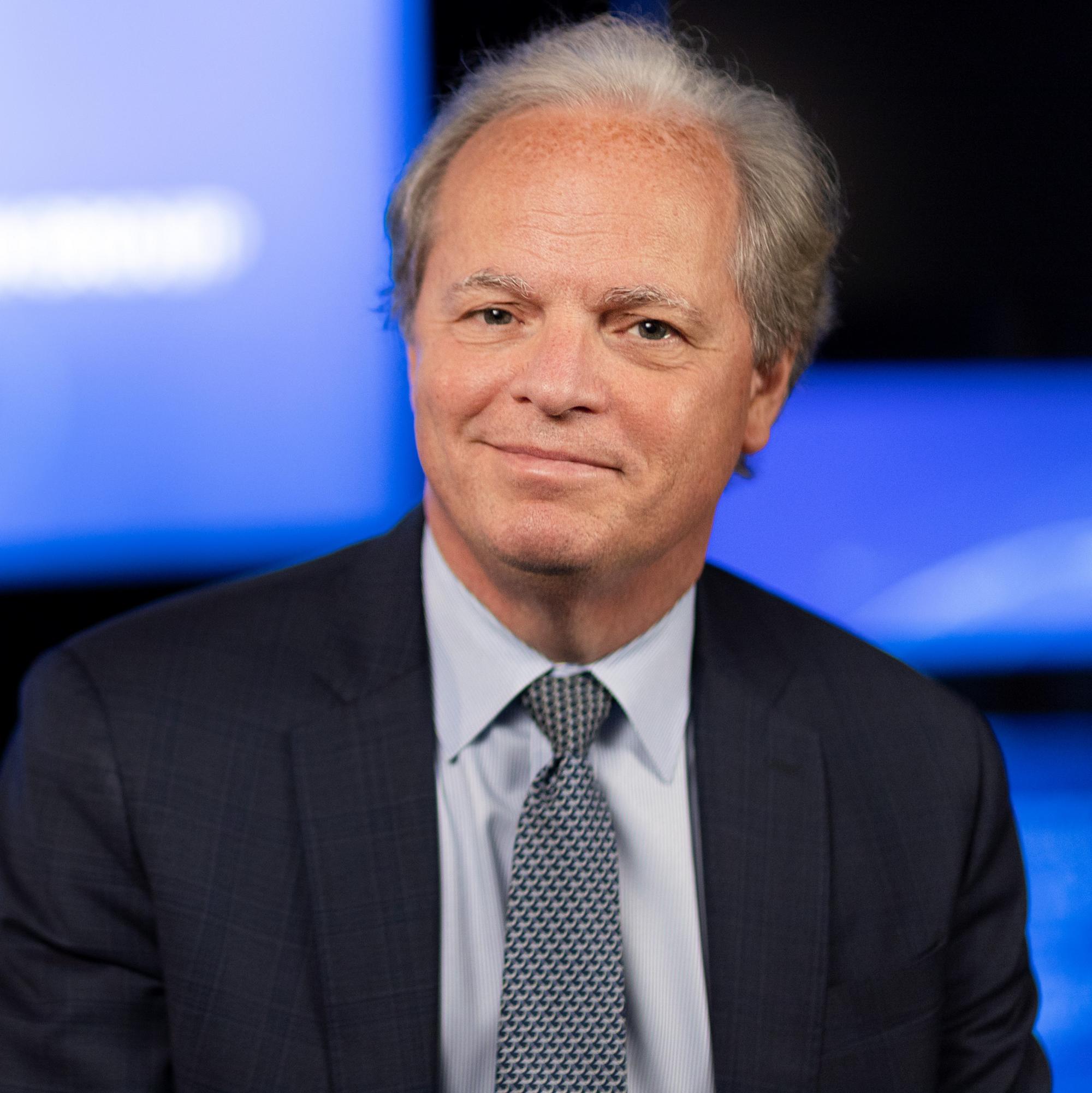
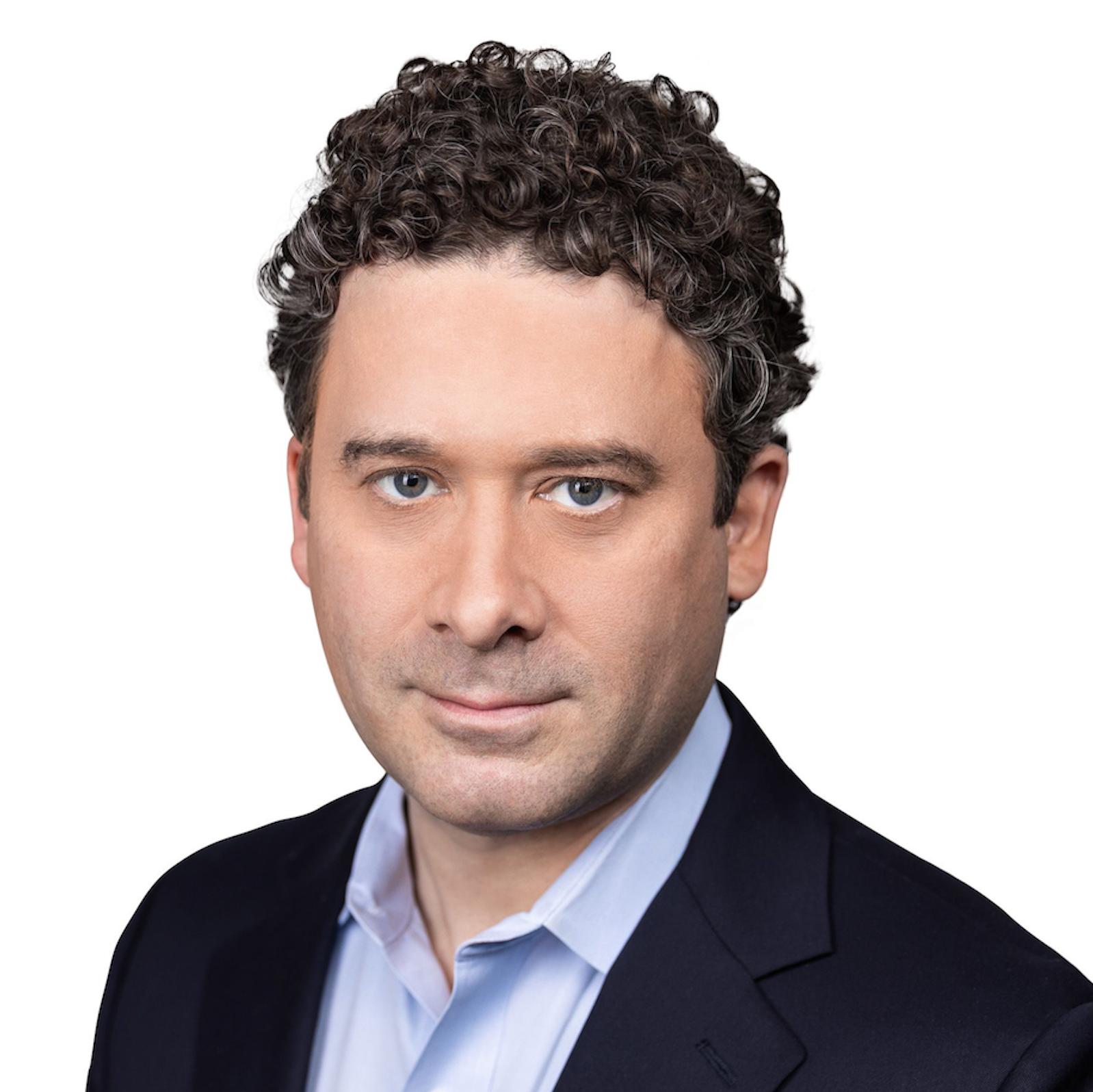
![Copy of [Backup] WBLive_landscape_All-colors - 1 2025 Concordia Annual Summit September 21-24, 2025 | NEW YORK CITY](https://s7d1.scene7.com/is/image/wbcollab/Concordia-Annual-Summit-in-New-York-City-2025-landscape?qlt=75&resMode=sharp2)
